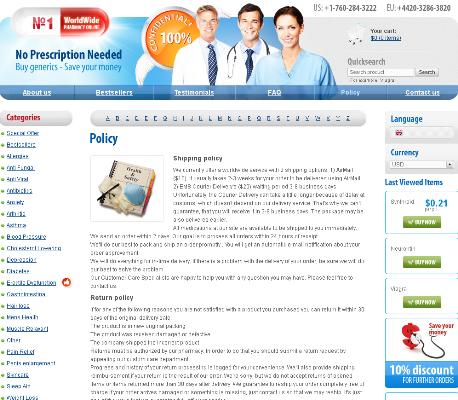Debunking Myths and Misconceptions about Hydroxychloroquine
Origins and Uses of Hydroxychloroquine Explained
Hydroxychloroquine, a compound medication, was first synthesized in 1950 as a safer alternative to chloroquine. Originally developed for malaria treatment, hydroxychloroquine's applications have expanded over the years. This RX medication is now employed in managing autoimmune diseases like lupus and rheumatoid arthritis. These conditions benefit from the drug's anti-inflammatory properties. Elixir of sorts for these chronic ailments, hydroxychloroquine continues to be prescribed by healthcare professionals worldwide.
Its introduction into modern medicine revolutionized malaria treatment, primarily due to its lesser side effects compared to its predecessor. Over time, its utility in treating autoimmune conditions was discovered, providing an essential tool in the fight against debilitating diseases.
| Condition | Usage |
|---|---|
| Malaria | Treatment and Prevention |
| Lupus | Anti-inflammatory Management |
| Rheumatoid Arthritis | Symptom Control |
Myth: Hydroxychloroquine Is a Cure-all Drug

While hydroxychloroquine has gained significant attention, it’s essential to understand that this medication is not a wonder drug for every illness. Originally formulated as an antimalarial elixir, hydroxychloroquine is frequently used today to treat autoimmune conditions like lupus and rheumatoid arthritis. The buzz around its use for COVID-19 led to many assuming it was a cure-all. This widespread belief can have dangerous consequences, especially given the drug’s side effect profile, which can include serious heart complications for some individuals.
In the chaos of Pharmageddon on social media and public opinions, the nuances are often lost. Not everyone who takes this medication will be pleased with a simple ‘magic bullet’ solution. Just like the Drive-Thru window doesn’t cater to every nuanced medical need, hydroxychloroquine isn't a one-size-fits-all. Its effectiveness truly depends on the specific medical conditions it’s prescribed for, and taking it without a proper script from a qualified healthcare professional can lead to severe side effects.
Medical evidence gathered from various studies does not support the idea that hydroxychloroquine is universally beneficial for multiple conditions. The scientific community has emphasized the importance of using drugs with proven efficacy, as misguided perceptions can lead to neglecting more effective treatments. It’s also crucial not to fall for the oversimplified narratives that often circulate in media and online platforms.
Being informed about the actual uses and limitations of hydroxychloroquine can help patients make smarter health decisions. Always consult your healthcare provider before considering any medication, as the directions on a hard copy of an Rx are based on a thorough understanding of your unique health profile.
Misconception: Hydroxychloroquine Is Safe for Everyone
Hydroxychloroquine, originally a treatment for malaria, isn't universally safe for everyone. Although some may receive a script for off-label uses such as lupus or rheumatoid arthritis, others might experience severe side effects. Not everyone metabolizes medications the same way, which means hydroxychloroquine can lead to toxic reactions like heart arrhythmias in certain individuals. Venturing into pharm party territory by irresponsibly sharing prescriptions can be particularly dangerous, as compounded medications might interfere with other drugs one’s taking.
The idea that hydroxychloroquine is entirely benign ignores the risks associated with its usage. Strict adherence to sig guidelines is crucial to mitigate severe complications. Even under medical supervision, the long-term impact on specific demographics, such as those with pre-existing conditions, can be unpredictable. Blind faith in this elixir without acknowledging its potential adverse effects is a risk no one should take lightly.
The Media’s Role in Misinformation Spread

In recent years, the media has played a significant role in the spread of misinformation about hydroxychloroquine. Various outlets have often sensationalized studies without thoroughly verifying their findings, leading to confusion among the public. Some platforms have treated hydroxychloroquine as a "magic elixir," while others have labeled it dangerous without a nuanced understanding. This misreporting can lead to a public rush to drive-thru pharmacies, overburdening healthcare systems and creating the misconception that this drug is either a cure-all or entirely unsafe.
Misinformation is further fueled by soundbites and social media posts that oversimplify complex scientific data. The lack of critical analysis in some news reports has inadvertently turned the medication into a political football rather than a medical treatment. This can amplify public misunderstandings and contribute to the pharmacological equivalent of a 'Pharm Party,' where uninformed individuals share and misuse drugs. The resulting 'Label Sticker Shock' can surprise those who believed in oversold promises, undermining faith in legitimate scientific findings.
Scientific Studies Vs Public Opinion on Efficacy
While public opinion on the efficacy of hydroxychloroquine has been swayed by charismatic endorsements and media hype, scientific studies paint a more nuanced picture. Rigorous clinical trials and peer-reviewed studies have not conclusively supported its use as a magic elixir for COVID-19. The divergence between public belief and scientific evidence highlights a significant challenge. Misinformation at "Pharm Parties" and through "Drive-Thru" conversations have compounded the issue, propagating the notion that hydroxychloroquine is a one-size-fits-all remedy. The reality, backed by scientific scrutiny, underscores the need for accurate information dissemination. The efficacy claims need to be cross-verified with robust data rather than anecdotal endorsements.
| Aspect | Public Opinion | Scientific Studies |
|---|---|---|
| Efficacy | Skeptical or supportive based on media | Generally not supported for COVID-19 treatment |
| Safety | Assumed safe for all | Risk of adverse effects for certain populations |
Alternative Treatments and Current Medical Consensus
Modern medical practice recognizes numerous alternative treatments beyond hydroxychloroquine. For instance, antiviral medications like remdesivir and molnupiravir have shown promise in clinical studies. Moreover, monoclonal antibodies are increasingly prescribed for targeted therapy, providing more specific Sig for patient care. These alternatives often come with fewer side effects compared to hydroxychloroquine, particularly for those with pre-existing conditions. Alongside individual treatments, combination therapies, or a "cocktail" approach, are common, integrating multiple drugs to enhance efficacy.
The current medical consensus emphasizes a personalized treatment plan tailored to the patient’s specific needs. This approach ensures that factors such as pre-existing conditions, potential drug interactions, and individual response are considered. Additionally, the importance of scientific studies remains paramount over public opinion, guiding treatment protocols based on robust data rather than media-driven narratives. This paradigm ensures that patients receive the safest and most effective treatments available.
<

